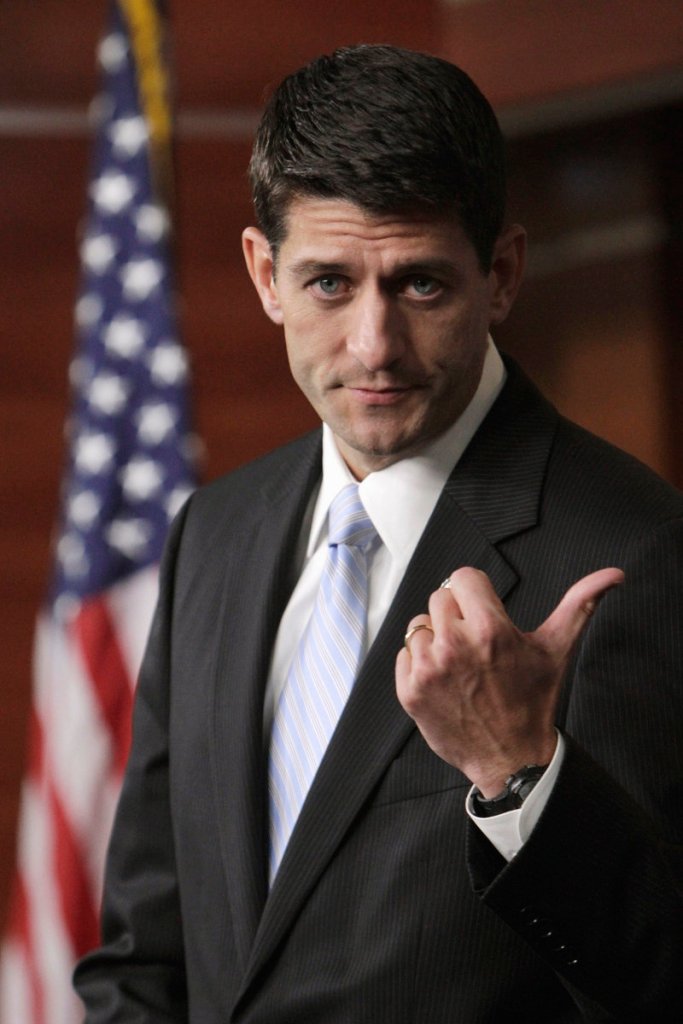WASHINGTON – Top congressional Republicans on Sunday accused President Obama of trying to incite class warfare with his proposal for a new tax on millionaires, and said they would not support the measure because it would hurt economic growth.
“Class warfare … may make for really good politics, but it makes for rotten economics,” House Budget Committee Chairman Paul D. Ryan, R-Wis., said on “Fox News Sunday.” “We don’t need a system that seeks to prey on people’s fear, envy and anxiety. We need a system that creates jobs and innovation and removes these barriers for entrepreneurs to go out and rehire people.”
The strong opposition by Republicans means the millionaire tax proposal is unlikely to pass Congress. But it promises to become a highly charged centerpiece in the battle over deficit reduction and job creation that will be a focus of the 2012 elections.
Sen. Richard J. Durbin, D-Ill., showed the tack his party might take when he criticized Republicans for not supporting Obama’s $447 billion jobs bill.
“I think his team put together a positive good plan,” Durbin said Sunday on CNN’s “State of the Union. “What’s the Republican alternative? Do nothing and protect the millionaires.”
As part of his deficit reduction plan, Obama will propose a new minimum tax rate today for millionaires to ensure that they pay an effective federal tax rate at least as high as that paid by middle-class earners, administration officials said.
The president will call the new tax the “Buffett rule,” after billionaire investor Warren Buffett, an Obama supporter who has complained that tax breaks allow him to pay a lower rate than his secretary.
The White House did not release details of the proposal, so it’s not known what the minimum tax rate for those earning more than $1 million a year would be or how much additional revenue it would produce.
According to White House talking points on the proposal circulated to lawmakers, “no household making over $1 million annually should pay a smaller share of its income in taxes than middle-class families pay.”
The White House said the Buffet rule would apply to the top 0.3 percent of wage earners, and noted that 22,000 people making more than $1 million a year in 2009 paid less than 15 percent of their income in taxes.
Congressional Republican leaders have said they are open to an overhaul of the tax code, but they have been adamant in their opposition to any new taxes. House Speaker John Boehner, R-Ohio, said last week that tax increases were “not a viable option” for the special congressional committee that must find at least $1.5 trillion in deficit cuts by Thanksgiving.
Senate Minority Leader Mitch McConnell, R-Ky., said wealthy individuals such as Buffett were free to pay more taxes, but the government shouldn’t impose an increase on people who help provide the investments that create jobs.
Obama has said that Buffett’s complaint about his relatively low tax rate is evidence that the wealthy can and should pay more. In an opinion article in August in the New York Times, Buffett said his 2010 federal tax rate was 17.4 percent because of various tax breaks for investment managers, such as those on capital gains. The average rate for the other 20 people in his office was 36 percent.
“If you make money with money, as some of my super-rich friends do, your percentage may be a bit lower than mine,” wrote Buffett, chief executive of Berkshire Hathaway. “But if you earn money from a job, your percentage will surely exceed mine — most likely by a lot.”
Durbin, the second-ranking Senate Democrat, said Republicans risked the wrath of the public if they opposed raising taxes on people such as Buffett.
“I wonder if John Boehner knows what it sounds like when he continues to say the position of the Republican Party in America is that you can’t impose one more penny in taxes on the wealthiest people,” Durbin said. “I wonder if he understands how that sounds in Ohio to working families who are struggling paycheck to paycheck.”
Send questions/comments to the editors.



Success. Please wait for the page to reload. If the page does not reload within 5 seconds, please refresh the page.
Enter your email and password to access comments.
Hi, to comment on stories you must . This profile is in addition to your subscription and website login.
Already have a commenting profile? .
Invalid username/password.
Please check your email to confirm and complete your registration.
Only subscribers are eligible to post comments. Please subscribe or login first for digital access. Here’s why.
Use the form below to reset your password. When you've submitted your account email, we will send an email with a reset code.